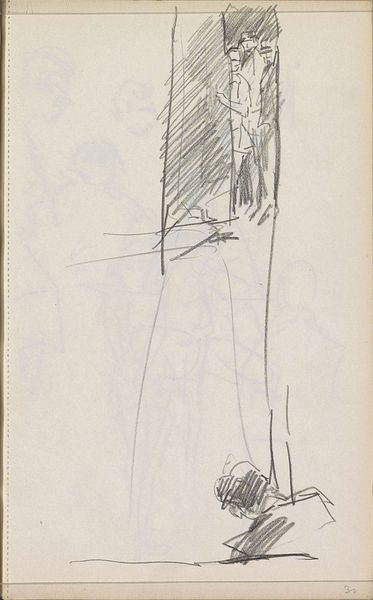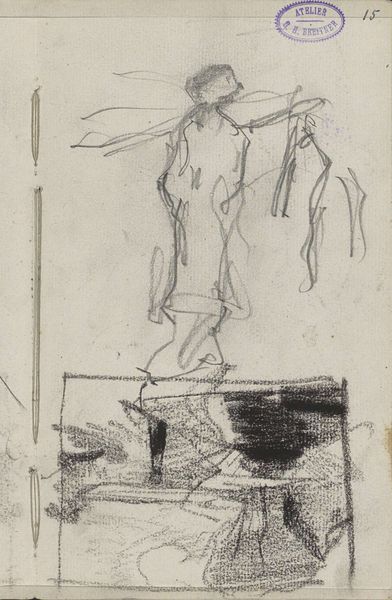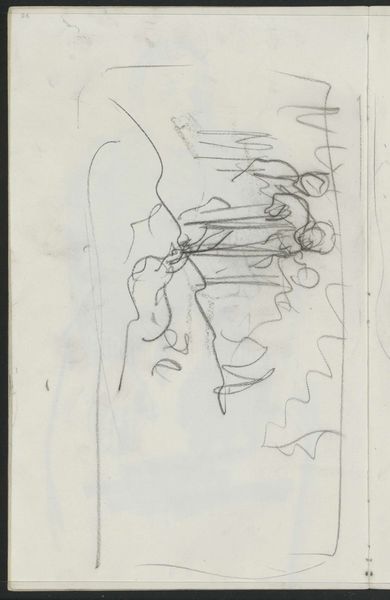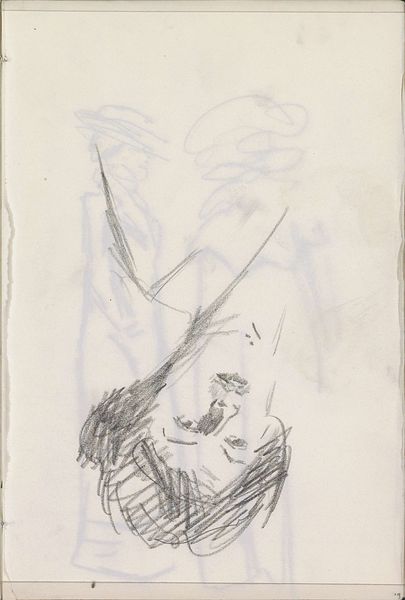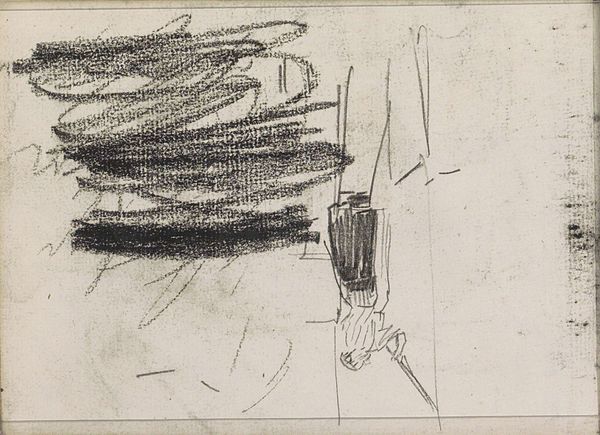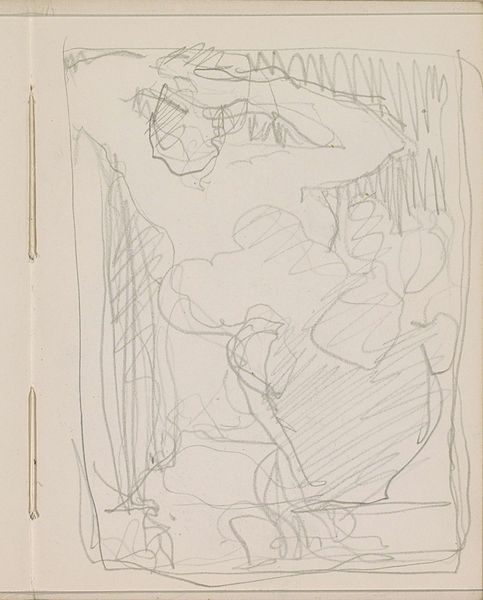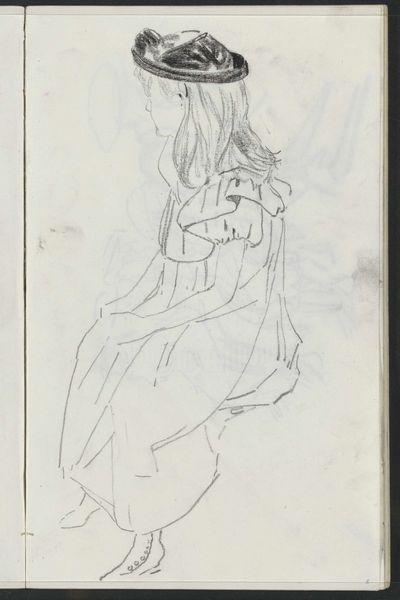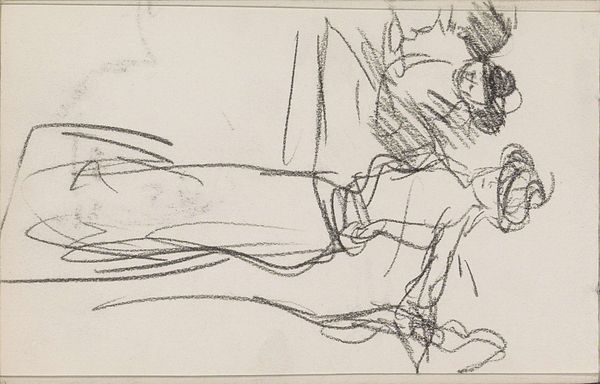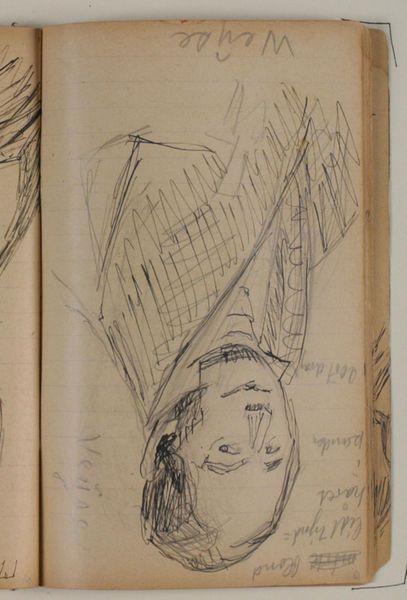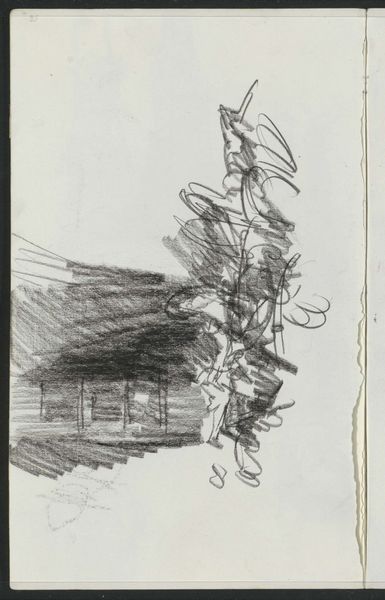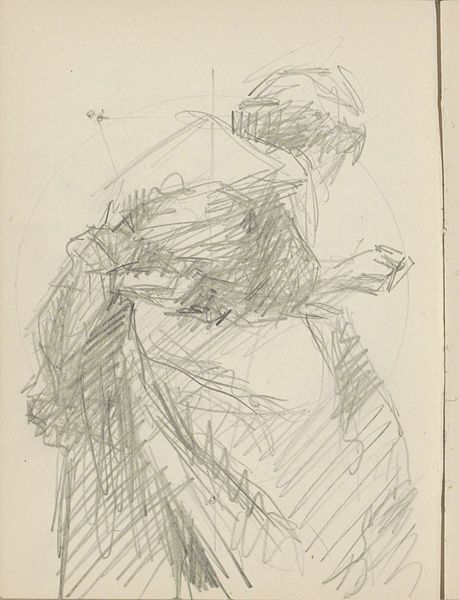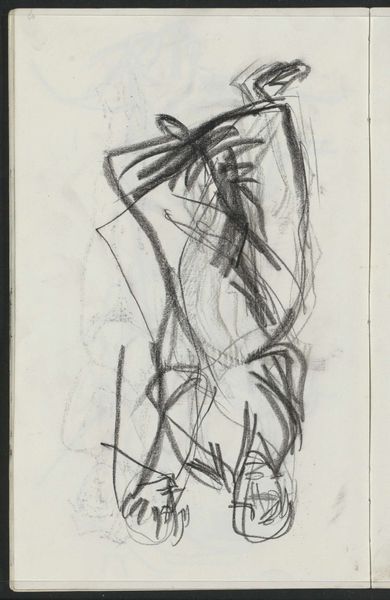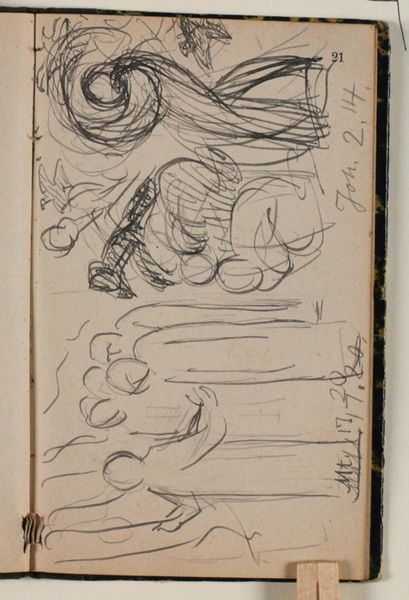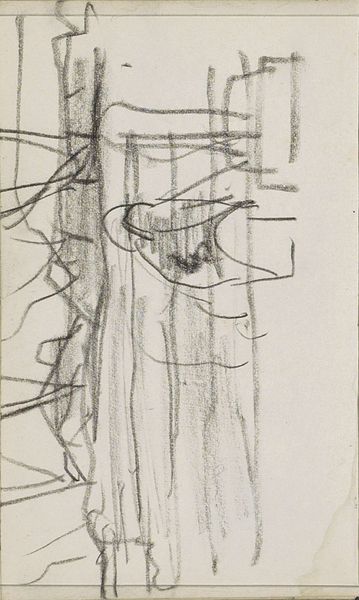
drawing, ink, pencil
#
portrait
#
drawing
#
pen sketch
#
figuration
#
personal sketchbook
#
ink
#
idea generation sketch
#
sketchwork
#
ink drawing experimentation
#
pen-ink sketch
#
pencil
#
pen work
#
sketchbook drawing
#
storyboard and sketchbook work
#
sketchbook art
Copyright: Rijks Museum: Open Domain
Curator: So evocative! This little sketch at the Rijksmuseum— "Vrouw met een mand en een kop van een vrouw," or "Woman with a basket and a head of a woman"—drawn sometime between 1906 and 1945, looks like it's jumped straight from a dream. Editor: My immediate impression is one of incompleteness, of studies not yet coalesced. What strikes me most are the stark contrasts. The upper figure rendered in aggressive black ink lines is almost violent. Curator: Right? It's like the artist was wrestling with something, some image trying to break free. Then, right below, you have this softer, gentler head sketched in pencil, almost mournful. A fascinating contrast that offers two aspects of this personhood, rendered at a single glance. It is like a rapid capture of the figure, perhaps envisioned as a precursor to something bigger. Editor: I'm thinking about the woman with the basket—the pen sketch. I can’t help but wonder, who was she? What’s she carrying? It speaks volumes, I think, about labor and perhaps even about the role of women at the time, burdened not only with the literal weight of a basket, but also societal expectations and constrictions, visualized through those dark, scratchy lines. Curator: Totally! It reminds me how much art making can be rooted in daily life! Perhaps the artist encountered this woman, basket in hand, during a stroll. There are, I believe, narratives interwoven within everyday experiences; moments frozen in time through these drawings. I suppose this is what moves me about sketchbooks in general, no? Editor: Definitely. What about the other, fainter drawing? It introduces, I think, this interesting dichotomy of public versus private, the completed versus the process, which can tell us so much more than a perfectly polished piece about the artist's world. We catch them at work. Curator: Absolutely. Seeing these initial attempts provides something rare—access to an intimate space! The dialogue continues beyond the frame, beckoning each new person coming face-to-face with this fleeting figuration. I'm truly mesmerized by the interplay of dark and light, chaos and serenity, embodied within it all. Editor: It also provokes broader reflections, reminding us how vital these "incomplete" works are. They challenge conventional notions of art and allow a more profound look at humanity’s history—fragmented and nuanced, one sketch at a time.
Comments
No comments
Be the first to comment and join the conversation on the ultimate creative platform.
